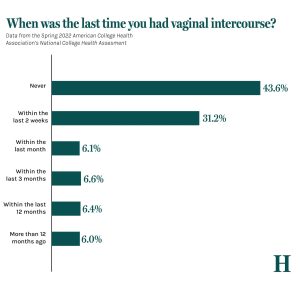
Is Greek life an institution capable of change, despite its exclusionary practices? This question sparks a controversial debate among college students across the country. Many worry about the exclusive nature of Panhellenic culture on campus and what accompanies it. Like many other institutions, social fraternities are rooted in exclusion, especially of minorities, and Greek life hasn’t always been a place of acceptance.
The first fraternity, Phi Beta Kappa, was created at William & Mary College in 1776 when two Latin secret societies rejected a politician named John Heath. Greek life became an exclusive institution when the first social clubs excluded Heath.
Gamma Phi Beta became the first official sorority in 1882, and Kappa Alpha Theta followed soon after. Sororities began in the Midwest as mainly Christian-affiliated secret societies. Fraternities and sororities were not only overtly white-only societies, but also only welcomed WASPs — also known as white, Anglo-Saxon, protestant people. People of color and non-Christians were not welcome in Greek life, so they made their own fraternities.
Tulane is home to three historically Black and two Jewish sororities. African Americans, Jewish people and Asians, as well as many other minority groups, created sororities and fraternities that are still prevalent on college campuses today. But they shouldn’t have had to create separate groups to gain the benefits that come with fraternity participation.
Exclusion always has a rhyme and reason; it is never accidental. In Greek life, students make social and professional connections. Without even joining a pre-professional fraternity, you can gain connections just from being in a social one. Keeping minorities out of these clubs gave non-members a disadvantage in gaining these professional opportunities. While only 8.5% of college men join fraternities, 85% of Fortune 500 executives were a part of Greek life during college.
Social and professional exclusion isn’t a vaguely historical problem either. Only in 2003 did an Alabama sorority admit its first Black woman. These problems have been recognized for a long time, but criticism peaked during the height of the Black Lives Matter movement in 2020. Many universities with a very liberal student body, such as Washington University in St. Louis and Northwestern, had members in various chapters drop their sororities and even voted to disband them. This idea is utterly incomprehensible at Southern state schools, such as the University of Alabama, where Greek life dominates campus.
Despite its questionable and exclusionary history, does Greek life do more harm than good?
I say no. While many join social fraternities for fun events, friendships and professional networking, the core of Greek life is charity. When you walk past the Lavin-Bernick Center for Student Life and see a girl getting pied in the face or a fraternity brother advertising an event, it is most likely for charity. Sororities and fraternities raise a shocking amount of money for various philanthropies every year. From preventing child abuse, to raising money for local food banks, to helping children with disabilities, every chapter gives back on a national and local level to people who need it. Since Tri Delta designated St. Jude as their philanthropy in 1999, the sorority has raised over $93 million for cancer research and patient care. These philanthropic efforts have done undeniable good.
These charitable pursuits by no means excuse a history and pattern of not only exclusion but blatant racism and antisemitism. But doesn’t that sound familiar? Every institution in our day-to-day lives was founded on exclusive and prejudiced terms. Schools, universities, workforces, restaurants, Hollywood, the press — the list goes on.
While Greek life has been embarrassingly behind on inclusivity, it is not irredeemable. Schools were segregated until Ruby Bridges, buses until Rosa Parks and marriage until Loving v. Virginia. While this history isn’t a pretty one, progress always has to start somewhere. While Greek life may seem inherently exclusive due to its troubled past and harsh recruitment tactics, so are most things.
College admissions are unpredictable and have a history of favoring those in privilege. With policies such as affirmative action — when it was in place — and test-optional admissions, we can work to make such an exclusive institution an accessible one.
While I defend fraternities and sororities’ potential for good, they still have a long way to go. Just as colleges implement programs to make low-income and minority students feel more comfortable applying, social fraternities should too. Recruitment is an inherently daunting process, and someone’s wealth, race and religion should not be considered when recruiting potential new members. I am not suggesting that the recruitment process be completely deconstructed, just that people be recruited for the right reasons.
Much of Greek life has Christian origins, perhaps intimidating non-Christian students. While historically Black and Jewish sororities are great opportunities for Tulane students to join spaces in which they feel welcomed, no student should feel unwelcome in Panhellenic sororities. Further, Greek organizations should implement more scholarships to even the financial playing field for those who can’t pay for something that isn’t a necessity.
Participants in Greek life must acknowledge the exclusive nature of the organizations and work to make them more accepting, inclusive and progressive. Sororities and fraternities do so much good for college campuses and philanthropies on a national level, and they have the potential to do even more.























Leave a Comment